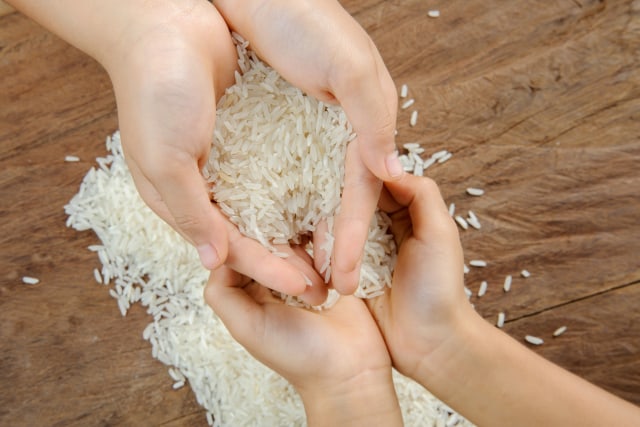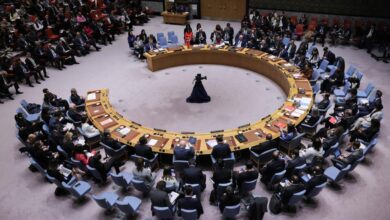Groups of People Who Can Pay Fidyah in lieu of Ramadan Fasting

DDHK. ORG – Fidyah can be a solution for people who cannot afford to fast during Ramadan must be fulfilled.
In general, people who leave the fast of Ramadan must make up for it by making up the amount of fasting left at other times, outside the month of Ramadan. However, other than that there are also people who are allowed to replace fasting in Ramadan by paying fidyah.
Just so you know, as reported from the page Dompet Dhuafa, the word fidyah is a term used in the context of redemption.
This word comes from the Arabic language, namely fadaa which means to give wealth to redeem someone. One of the contexts regarding redemption is written in Al-Quran surah As-Saffat verse 107, when Allah SWT ordered Prophet Ibrahim AS to slaughter his son, Ismail As.
In general, the essence of fidyah is spending a certain amount of money or assets to redeem something. For example, in the context of Ramadan fasting.
If someone leaves the obligation of fasting because of an udzur syar'i (obstacles that allow a person to leave the obligation), he can compensate by paying fidyah, and does not have to make up his fast.
Groups of People Who Can Pay Fidyah
In Al-Quran surah Al-Baqarah verse 184, Allah SWT allows a Muslim to replace his obligatory fast by paying fidyah. But at the end of the verse, Allah emphasizes again, trying to keep fasting is the best thing than making up for fasts or paying in this way.
“So whoever among you is sick or on a journey (then he breaks his fast), then (it is obligatory for him to fast) as many days as he has missed on other days. And it is obligatory for those who are hard to do it (if they are not fasting) to pay fidyah, (namely): to feed a poor person. Whoever willingly does good, then that is better for him. And fasting is better for you if you know." (QS. Al-Baqarah: 184)
Thus, this is a form of God's love for his servant. This is because, instead of punishing or burdening people who are unable to fast, Allah makes it easy for someone to pay fidyah without having to make up their fast again.
Rent Parents
Most of the elderly or elderly people (elderly) body functions have decreased and become weaker. Most of them are also no longer able to fast, so they are allowed not to fast and replace it by paying fidyah for the number of days they missed fasting.
In addition, elderly people are also not required to make up fast, because logically their physical condition will decrease with age. Therefore, religion does not burden them with burdensome obligations. The following is the argument that elderly parents may pay fidyah:
“Telling Ahmad bin Abdillah the representative of Abi Sakhrah, telling Hussain bin 'Urfah, telling Ruuh', telling Zakaria bin Ishaq rather than Umar bin Dinnar than Attha', in fact I heard Ibn Abbas recite verses (Al-Baqarah: 184). So he said: “This verse is not abolished by law, but applies to elderly men and women who are no longer able to fast during the month of Ramadan. Both are obliged to pay fidyah to a poor person for every day he misses (not fasting).” (Ali bin Umar Ad-Daruquthni)
Pregnant and Breastfeeding Women
Pregnant and/or breastfeeding women are allowed not to fast and pay fidyah to make up for their fast, because they are afraid something will happen to the child they are carrying or breastfeeding. However, a number of scholars differ on this matter.
Some scholars say that pregnant and/or breastfeeding women are required to fast and pay fidyah. Meanwhile, several other scholars state that pregnant and/or breastfeeding women may make up for missed fasts only by paying a fidyah.
Sick People Who Have No Hope of Healing
A Muslim who is sick and in his illness has no hope of recovery, so he may pay fidyah without having to make up his fast outside of the month of Ramadan.
This is based on a hadith narrated by Abdullah Ibn Abbas radhiyallahu 'anhu, he explained:
“It was reported to us, Muhammad bin Ismail bin Ibrahim said; told us from Yazid he said; has conveyed to us Warqa' from Umar bin Dinar rather than Atha' from Ibn Abbas radhiyallahu 'anhu, about the Word of Allah Azza wa Jalla: with fidyah (feeding one poor person) and who is able to provide more than one person, it is better for him. In fact, the verse that follows is not enshrined in the verse that follows, but there is no relief in that verse (to pay fidyah), except for people who are unable to fast or are sick whose recovery is difficult to hope for. (Ali bin Umar Ad-Daruquthni)
People Died
People who die are included in the group of people who are allowed to pay fidyah. However, the person who died here was he who still left a fast debt for two reasons.
The first reason is that he left fasting because of an excuse for syar'i, such as being sick but there is a possibility of recovery so it is thought that he still has a chance to make up for it, but it turns out that he has not yet completed his fast, his death has already come.
While the second reason is that he left fasting because of an excuse from syar'i, but until after Ramadan his condition did not improve, so it was still impossible to fast until his death came. If so, then the fidyah obligation is imposed on the deceased's family, they are obliged to pay the fidyah of the deceased/ah as much as the number of fasting days he left behind.
People who Delay Paying Fasting Debt
Delaying paying the debt of Ramadan fasting is not recommended in Islam, let alone postponing it until the next Ramadan comes. However, if during the delay there is an udzur syar'i reason such as illness, for example, then that person is allowed to postpone the payment of the fast debt until the next Ramadan.
However, it is different with people who intentionally delay paying their Ramadan fasting debts until the following Ramadan without any excuse from the syar'i. If someone deliberately does this, then according to the majority of scholars from the four schools of thought, that person is obliged to make up his fast and at the same time pay fidyah for the number of days of fasting he missed.
For the amount of fidyah and the time limit for paying fidyah, you can read more about it here: Definition of fidyah, law and conditions according to Islam. Meanwhile, for Friends who want to pay fidyah easily, you can channel it through Dompet Dhuafa via the link below.
Through Fidyah Dompet Dhuafa, God willing, your fidyah will reach beneficiaries who really need and deserve it. [DDHK News]



